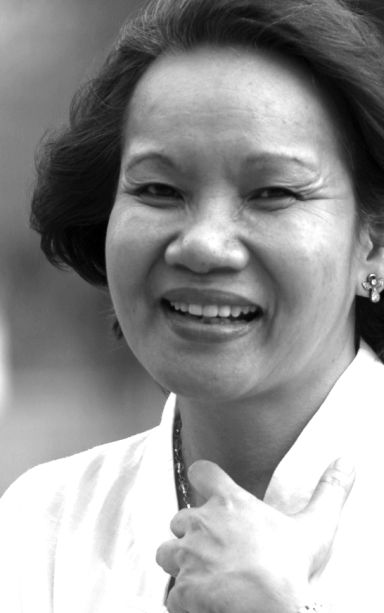
LOGARTA
Moving forward spiritually requires a regular reflection of our religious practice. We did this in the Our Mother of Perpetual Help Visayas Congress. In “Looking at the Novena Texts,” several provocative questions were raised by Fr. Ramon Echica, SThD: “Isn’t it immature for children to be always asking from a mother who may spoil her children in everything? … Isn’t the devotion to OMPH not conducive to a faith that embraces personal and communal responsibility?” Echica points to texts in the novena and declared that “there are clear prayers that promote responsibility: that the young may be self-reliant and that workers may take pride in their work. What is even more clearly against the idea of irresponsible religiosity is that prayer for the devotees to do everything in their capacity to bring justice and progress.”
Echica also brought in the concern of the American feminist theologian: “Idealization of Mary leads to a loss of specific historical identity.
Furthermore idealizing one woman largely through male imagination, marginalizes the rest of women. … Consequently, such idealization leads to the obliteration of the valuable examples of other women.” So he proposed: “it is important to consider the historic specificity of the person of Mary, even if reality tells us that data about her life are extremely scant. We can at least know the political, economic milieu of the Nazareth during her time and that she must have belonged to the peasant class. We can be fairly certain that the members of the peasant class then were voiceless in the power game and that she and her family may have shared the same lot. We also know that she followed Jesus all the way to Jerusalem where he was crucified. … We can be in solidarity with Mary not because her historical context is the same as ours. But despite the differences in context, she can be in solidarity with us in terms of resistance to suffering, hope for a just world, and celebrations for whatever triumphs are experienced.”
Echica observed that the sustained attendance and participation in the novena prayers has also been due to the approach of the Redemptorists in the sacrament of Reconciliation. Consistent with their founder, St. Alphonsus de Ligouri, they offer “divine mercy instead of rigidity.”
Since apparently the novena prayers have evolved, Echica offers suggestions for inclusion: the challenges of the environmental crisis, globalization, social media and information technology, terrorism and confronting biases toward other faiths or political convictions.
To make us understand better our behavior and those of companion devotees, Bro. Karl Gaspar brought us to a global and national past. He discussed extensively on what our religious behavior have been anchored on. He focused on our affinity with a mother figure and the female element. He also let us see ourselves by providing a mini-procession go on as he gave his presentation. He reminded us of how at home we are with Our Mother of Perpetual Help praying to Her in our local languages, doing his presentation in the various local languages of the Visayas. In his conclusion, he recognized the various levels that various devotees were at in their worship. But he points out that they are “accepting one another and not making judgments against each other”; because here “they can be assured of the Mother’s perpetual compassion.”
In his passionate discussion of “Debo(Mi)syon,” Fr. Ino Cueto, CSsR, shows the way forward. In his exposure to the devotees, he learned of “a new experience of sociality and relationality. A devotee who is suffering is led to another who is also in pain … a different social net of relations and support” emerges.
More categorical and clear he declared: “Debo(Mi)syon: Devotion as Mission-al and Mission as Devotion-al, is a dis/position that is akin to a journey, a search that lies between devotion and mission. It is highly devotion-al as it is filled with zeal and love. The devout is intensely touched by his/her experience glimpsed through the Icon of God. S/He is ‘consecrated’ to the altar of a man-God whom s/he encounters in his/her narrations of prayerful pleas and heartfelt gratitude. In the same regard, it is mission-al in its practiced desire to reach out and serve others, not in his/her own terms alone but in the service of God’s mission and His/Her Reign.”
Disclaimer: The comments uploaded on this site do not necessarily represent or reflect the views of management and owner of Cebudailynews. We reserve the right to exclude comments that we deem to be inconsistent with our editorial standards.
